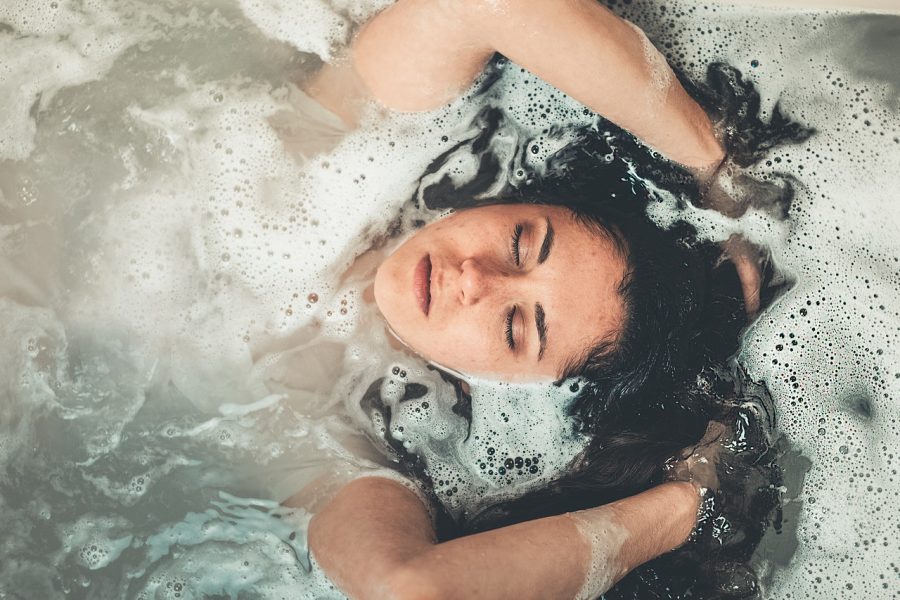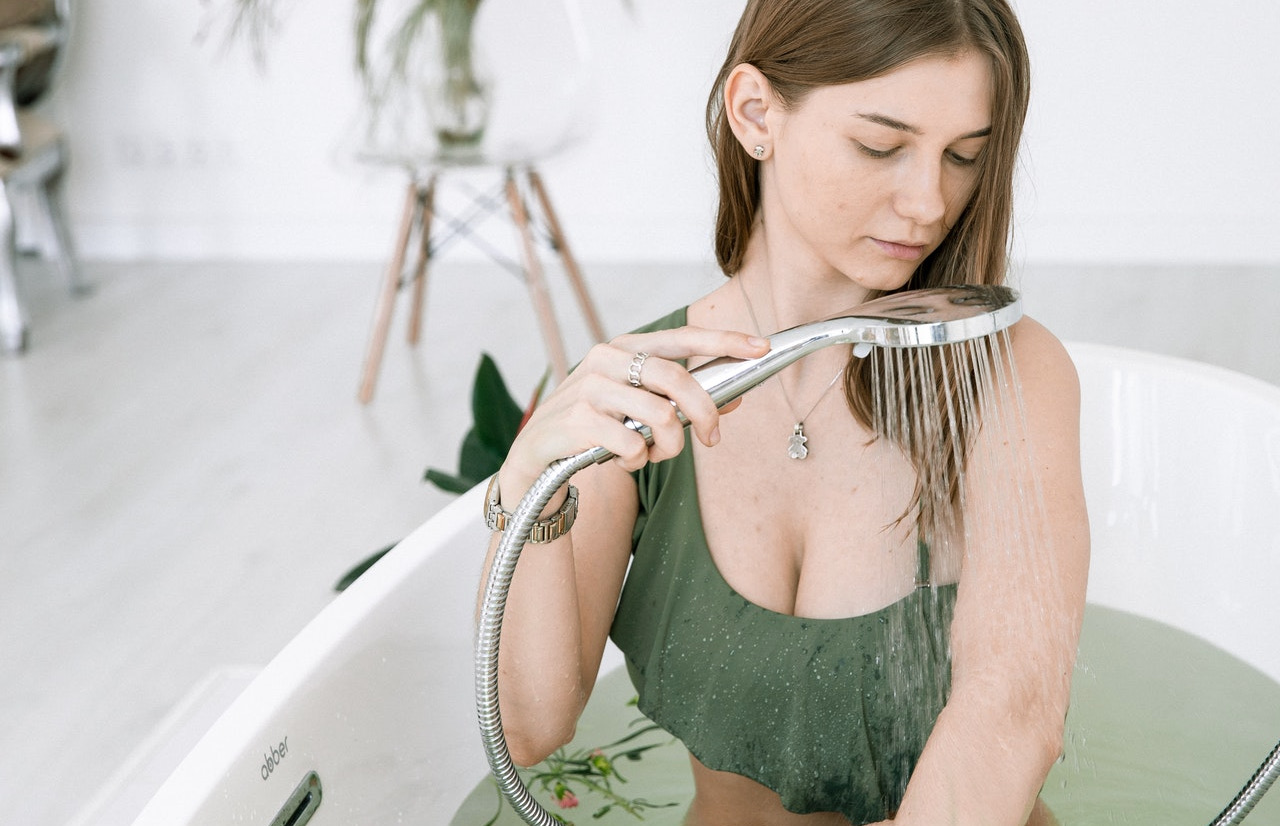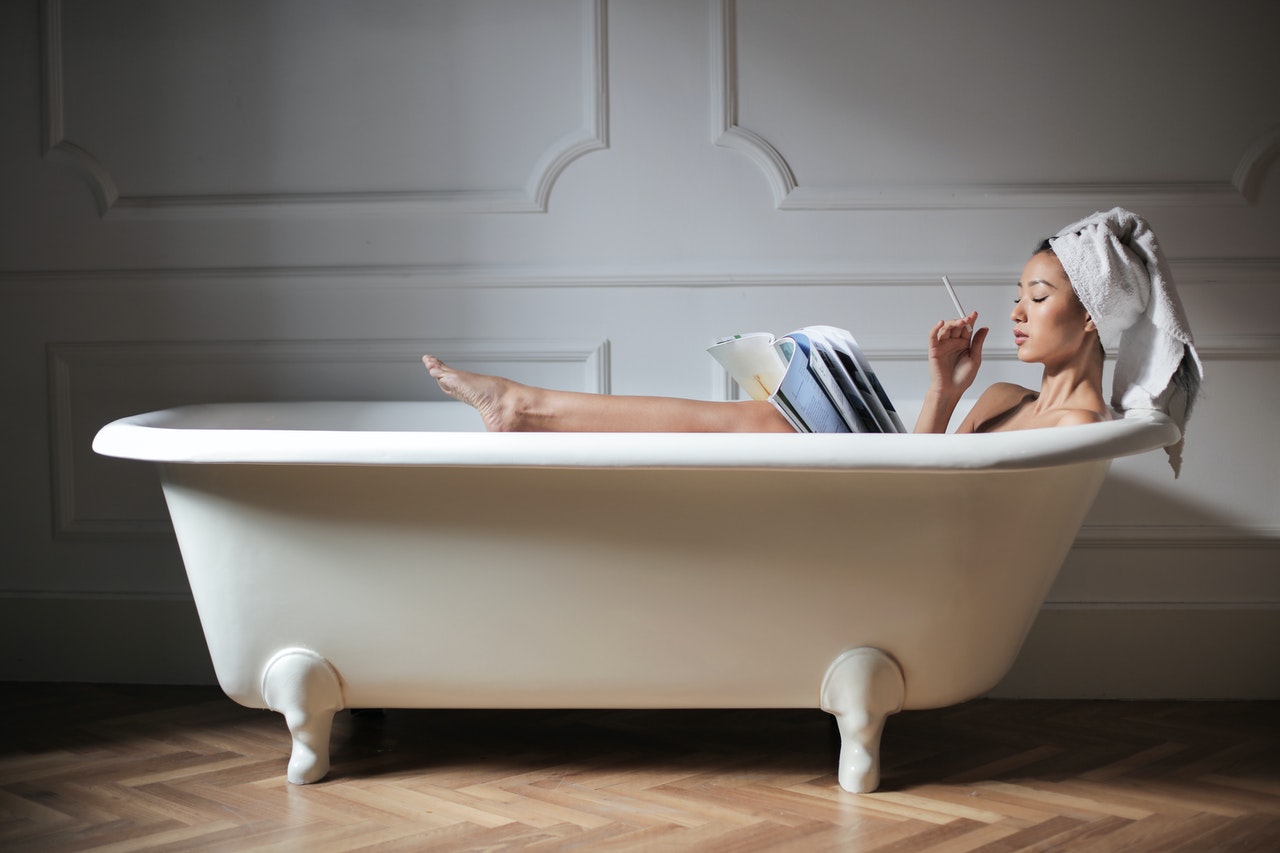
Some people notice it on holiday. Some notice it when they move to a new city or region. Others never notice it at all. But the water in your area absolutely affects your skin and hair, whether or not you’ve realised it before.
Maybe you noticed your complexion was clearer, your skin glowing. Could be that your fine hair felt limp and flat. Honestly, it could go either way – it all depends on where you live. Because hard and soft water makes a tremendous difference to your appearance.
Parts of the UK are home to particularly hard water, especially in the South East, London and Oxford. Other areas, such as parts of Yorkshire, Wales and Scotland, have the softest water you’re ever likely to find.
When your water is hard, though, you’ll find it has quite a disastrous effect on your skincare and hair. Sure, it’s a little better for your teeth and bones, but skin havoc and frizzy hair are always going to be an issue unless you take action.
So, what is hard water, exactly?
Basically, it’s when your water is heavy on the minerals. But of course, it’s more complicated than that.
Before water reaches your tap, it can flow through any number of areas in nature, such as limestone rock or chalk. These tend to leave deposits in the water, like magnesium and calcium. When water is soft, it’s pretty much mineral-free, like rainwater.
You’ll be able to get an idea of whether your water is hard by checking out a few of the classic telltale signs around your home.
- Do you find there’s an odd film on your shower glass or bath?
- Scaly bits in the bottom of your kettle (and your mug)?
- Rough-feeling clothes no matter how much fabric softener you use?
- Face wash and shampoo not lathering?
Then you probably live in a hard water area. If you’re not sure, you can check online.
For those of you who’ve always lived in a hard water area, you probably don’t notice it much. But for anyone who’s moved away from a soft water area, you’ll likely be struggling to understand why your skin is dull and your hair feels flat and dirty.
That’s because the calcium and magnesium in hard water react with the fatty acids in your shampoos, face washes, and body washes. They form chemicals that coagulate and don’t rinse away easily. This leaves a residue on your skin that means you’re never properly clean.

What is hard water doing to your skin?
Over an extended period, this filmy residue on your skin will disrupt the skin’s natural barrier. The result is clogged pores, which you’ve probably learned by now can lead to acne. It can also cause flare-ups of eczema and dermatitis, and worsen existing conditions.
If you’re lucky enough to have great skin, you’re probably still going to find hard water causes issues if you’re using it regularly to wash your face and body. It can cause dryness and itchiness over time, which is usually first noticeable on your scalp.
For those with sensitive skin, even wearing clothes washed in hard water can cause irritation. If this is the case for you, then it’s time to reconsider your water exposure, turn down the temperature in the shower, or invest in a filter.
What does hard water do to your scalp and hair?
Washing your hair regularly in hard water can leave you with an irritated, flaky scalp and flat, lifeless hair. Over time, this can cause your hair to look dull and, if coloured, lose its lustre.
If you already find your hair can be greasy, washing it with hard water will exacerbate the problem, as (unless you’re using a clarifying or chelating shampoo) the chances are high your hair is still dirty when you’re done.
Of course, a dehydrated scalp means even the oiliest hair can end up flaky. But it’s not just your scalp that will suffer.
Hard water erodes hair elasticity over time, making the hair feel rough no matter how much conditioner you slather on. In especially hard water areas, it can even build up a coating on your hair strands. This causes them to grow brittle, and snap off.
Yes, your water could give you a receding hairline.
If you dye your hair at home, or have it coloured professionally, hard water can strike regardless. Many people find that even natural hair tones can become brassy or orangey with hard water. Add that to the dry frizz from mineral build-up, and you’ve got a recipe for hair disaster.
How can you treat hard water?
For Skin
There are several things you can work into your daily routine to help counteract the effects of hard water. First, try using micellar water to cleanse your face instead of water straight from the tap. However, be aware that this alone won’t remove make-up thoroughly, so you might need to use other products, too.
You could also add a toner into your routine if you don’t already use one. These can help to remove any additional residue on your face, allowing for a waterless cleanse.
If you must use water, make sure it’s not hot, and when drying your face (or body), gently pat dry. Don’t scrub.
Opt for moisturisers that contain hydrating ingredients, like ceramides and niacinamide. This will help to strengthen the natural skin barrier and provide the best results.

For Hair
There are a couple of things you can do to help your scalp and hair. Although the truth is, none of them are going to totally fix the problem.
First, add a chelating shampoo into your routine. These deep cleansing formulas are often developed specifically for hard water and removing the residue build-up on your hair.
Most formulas are too heavy-duty to use every day, particularly on dyed hair, as they’re likely to fade it. However, there are a few options out there for hard water that won’t strip your colour – they’re just not the cheapest on the market.
You may also find it beneficial to add a regular scalp mask into your routine. Choose one that can cleanse thoroughly and lift away traces of minerals, while hydrating your locks at the same time.
Olaplex can be an excellent choice to repair the hard water damage to your hair. However, using it without a water softener will be considerably less effective – the product will struggle to penetrate through the build-up on your hair. We’d suggest applying this after your clarifying/chelating shampoo for the best results.
For Home
If you don’t want to buy different skincare and haircare products, or you’re worried about the long-term cost of changing up your products, there are house-wide options you can go for instead.
There are plenty of UK companies that offer a professional filtration system, or water softener installation. If you rent your home, you 100% need to get permission from your landlord before you try anything. But if you own your property, then a water softener on the mains water supply might be a good idea.
Water softeners aren’t cheap, we’ll admit. You’re looking at hundreds, if not thousands, of pounds for it to be installed. And the filters need to be changed regularly. However, your appliances may last longer (no more descaling), and your coffee will certainly taste better. Not to mention the ease of cleaning the taps with no more limescale, and, of course, better hair and skin.
If that seems a little OTT, then there are a few other things you can try.
- Carbon water filters are an option, which fit into or onto your tap (there are several varieties).
- You can try washing your hair and face in bottled water (not mineral water!), but this can quickly become pricey.
There are also a few shower filters around these days. Brands such as HELLO KLEAN offer a few types, which fit directly onto your shower. There are also filtered showerheads you can buy. Unfortunately, most of these filters don’t filter out the problematic minerals. Make sure you check the product information before investing, as most items don’t filter calcium or magnesium, which are the worst culprits for your skin and hair.